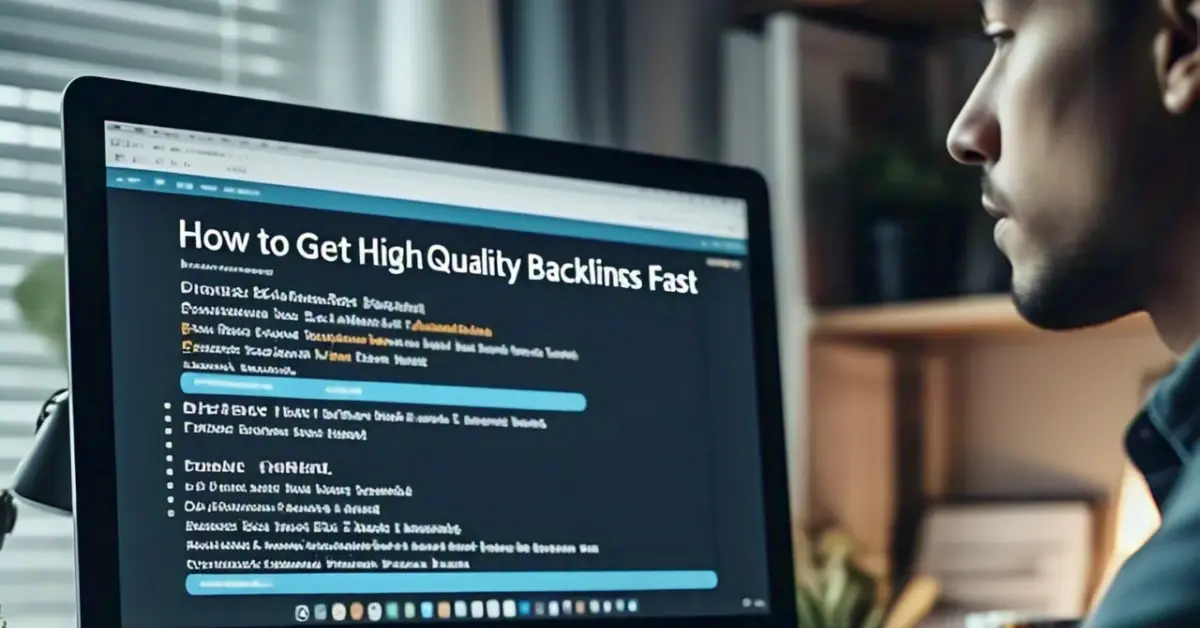With the ever-evolving landscape of digital marketing, link building has emerged as a powerful tool that can significantly impact your website’s search engine rankings. It refers to the practice of acquiring hyperlinks from other websites to your own, which not only helps in driving traffic but also enhances your site’s authority in the eyes of search engines. Understanding the importance of link building is key to improving your SEO strategy and ensuring that your content reaches a wider audience, ultimately fostering growth for your online presence.
Key Takeaways:
- Link Building is the process of acquiring hyperlinks from other websites to your own, which can improve your site’s visibility in search engine results.
- SEO Benefits of link building include increased domain authority, higher organic traffic, and better rankings, enhancing your overall online presence.
- Effective Link Strategies such as creating valuable content, guest blogging, and networking can significantly contribute to a successful SEO campaign.
Understanding Link Building
While the world of SEO can often seem overwhelming, understanding link building is necessary for enhancing your website’s visibility and ranking on search engines. Link building is the process of acquiring hyperlinks from other websites to your own. These links serve as pathways for users to navigate between different web pages and are also utilized by search engines to crawl the web efficiently. This practice is vital because it helps search engines determine the relevance and authority of your content, which can significantly impact your overall search ranking.
Definition of Link Building
Above all, link building is about creating connections and relationships on the internet. By earning backlinks, you are necessaryly vouching for your website’s credibility and worth. This can be achieved through various tactics such as content creation, outreach, and relationship building with other webmasters or influencers in your niche. The more quality backlinks you obtain, the higher your website can rank on search engine results pages (SERPs), leading to increased traffic over time.
The Evolution of Link Building
With the ever-changing landscape of SEO, link building has evolved significantly over the years. In the early days of the internet, acquiring links was a straightforward process; websites would exchange links or participate in link farms with minimal considerations for quality. However, as search engines became more sophisticated, they began to prioritize the quality and relevance of backlinks over mere quantity. Consequently, link building strategies have had to adapt, focusing on authentic connections and high-quality content.
Understanding the evolution of link building also means recognizing that search engines, like Google, continuously update their algorithms to prevent manipulation and ensure fair play in the digital realm. Staying informed about these trends is necessary for you to maintain a competitive edge in your SEO efforts.
Types of Links
One necessary aspect of link building is familiarizing yourself with the different types of links available. Each type serves specific purposes and contributes differently to your site’s SEO. Here’s a breakdown:
| Type of Link | Description |
| Natural Links | Links that are acquired without any effort from you, often because your content is valuable. |
| Manual Links | Links that you actively seek out and request from other websites. |
| Self-Created Links | Links that you create through forums, blog comments, or social media. |
| Internal Links | Links that direct users from one page on your website to another. |
| External Links | Links that direct users from your website to other sites. |
It’s important to recognize that each type of link offers varying levels of value and impact on your SEO strategy. Knowing how to leverage these links effectively can make a significant difference in driving traffic to your site.
NoFollow vs. DoFollow Links
But as you dive deeper into link building, you’ll encounter the terms NoFollow and DoFollow links. A DoFollow link is a link that passes on link equity (also known as link juice) to the linked website. Essentially, this type of link tells search engines to follow the link and consider it as a vote of confidence for your content. Conversely, a NoFollow link instructs search engines not to pass on any link equity, which means while you might get traffic from it, it won’t directly contribute to improving your search rankings.
Any effective SEO strategy recognizes the balance between acquiring both NoFollow and DoFollow links. While DoFollow links are critical for building authority, NoFollow links can still play a role in creating a diverse link profile that appears natural to search engines. By utilizing both types, you can enhance your website’s visibility without risking penalties from search engines.
At the end of the day, when it comes to link building, focusing on acquiring high-quality DoFollow links will be necessary for your SEO success. However, the importance of NoFollow links should not be underestimated, as they help create a well-rounded backlink profile that promotes user engagement and potentially increases your website’s visibility.
The Importance of Link Building for SEO
Your website’s visibility is largely influenced by a variety of factors, and link building is one of the most significant. By acquiring backlinks from reputable sites, you can enhance your site’s authority in the eyes of search engines. This, in turn, drives higher rankings in search results, and ultimately, more visitors to your site. The dynamic between link building and SEO makes it an indispensable part of any digital marketing strategy.
How Link Building Impacts Search Engine Rankings
Behind every successful website lies a strong link profile that contributes to improved search engine rankings. This set of links serves as a vote of confidence, signaling to search engines like Google that others trust your content and deem it valuable. Consequently, the more high-quality links you earn, the greater the potential for elevating your site’s position in search results. This visibility is vital as users are more likely to click on the top-ranking results, thereby increasing your chances of engagement and conversions.
Furthermore, effective link building can help you outperform competitors in search rankings. If your site has more high-quality backlinks, it stands a better chance of being seen as a leading source of information within your niche. This not only impacts rankings but also positions you as a go-to authority, setting the stage for consistent growth.
The Role of Backlinks in Authority and Trust
An crucial aspect of link building is the aspect of backlinks. These are links from other websites that direct users to your content, and they play a vital role in establishing your site’s authority and trustworthiness. When reputable websites hyperlink to your pages, it sends a powerful signal to both search engines and users that your content is credible and relevant. Over time, this accumulation of trustworthy backlinks can significantly boost your domain authority, making you more likely to rank well.
To achieve sustained success, it’s not just about the number of backlinks, but also their quality. Search engines analyze the source of backlinks, giving preference to those from high-authority domains. Ultimately, building a network of robust backlinks positions your site as a credible resource, allowing you to engage with your audience more effectively and enhancing your overall online presence.
Organic Traffic and Link Building
Search engine rankings directly correlate with the amount of organic traffic your site experiences. As your site climbs the search engine results pages (SERPs) due to strategic link building, you will likely notice a surge in visitors finding your content naturally, rather than through paid advertising. This organic traffic tends to be more sustainable and cost-effective over the long term, making it a key benefit of link building you should leverage.
Due to the nature of organic traffic, websites that successfully employ link building strategies typically see increased engagement metrics. Visitors who arrive through organic search are more inclined to explore multiple pages on your site and spend more time engaging with your content, which can lead to higher conversion rates and improved business results. Conclusively, a solid link building strategy not only boosts your SEO but also plays a significant role in increasing your site’s traffic and engagement levels.
Key Factors Influencing Link Building Success
Once again, understanding the key factors that influence your link building success can significantly impact your overall SEO strategy. Here are some imperative elements to consider:
- Link Quality vs. Quantity
- Relevance of Linking Domains
- Anchor Text Optimization
- Content Quality and Linkability
Assume that you focus on these influential aspects for effective link building.
Link Quality vs. Quantity
Between the two, link quality is often more significant than link quantity. A few high-quality links from reputable websites can have a greater impact on your ranking than numerous low-quality links. High-quality links typically come from sites with domain authority, relevance to your niche, and a solid online reputation, indicating to search engines that your content is reliable and trustworthy.
Moreover, the diversity of your link profile plays a role in its quality. You should aim for a mix of links from various sources, such as blogs, news outlets, and industry-specific forums. This diversification signifies to search engines that your site is valuable and recognized across different domains.
Relevance of Linking Domains
An important aspect of link building you should never overlook is the relevance of the domains linking to your site. When you obtain a link from a domain that is contextually relevant to your content, it strengthens the connection between your site’s theme and the hyperlink. This relevance enhances the credibility of your website in the eyes of both users and search engines, potentially boosting your SERP rankings.
Additionally, relevant links improve user experience since they attract a more targeted audience. A user finding your content via a relevant link is more likely to engage and convert, ultimately contributing positively to your website’s overall performance and SEO value.
Influencing your link building strategy by evaluating the relevance of linking domains can shape your website’s authority. Prioritizing links from trusted sources within your niche ensures that your efforts are both efficient and effective, resulting in enhanced visibility on search engines.
Anchor Text Optimization
With anchor text optimization, you have an excellent opportunity to signal to search engines what your link is about. The words that make up your anchor text should be relevant, descriptive, and include your target keywords. Properly optimized anchor text can improve your website’s ranking for those specific keywords, as search engines utilize this information to determine what your content is related to.
However, you should avoid over-optimization, as it can lead to unnatural link patterns, which may be penalized by search engines. Balance is key; incorporating branded, generic, and exact match anchor texts creates a more organic and trustworthy link profile.
This practice can lead to significant improvements in your SEO efforts, fostering organic growth and enhancing your credibility in the digital space.
Content Quality and Linkability
Any successful link building strategy hinges on the quality of your content. Creating informative, engaging, and valuable content increases the likelihood that others will link to your site voluntarily. High-quality content acts as a magnet for backlinks, highlighting your expertise and relevance in your niche. This can take various forms; detailed articles, infographics, videos, or even comprehensive guides are all valuable assets that drive people to share your work.
Furthermore, the more shareable your content is, the more backlinks you are likely to attract, amplifying its reach and effectiveness. A well-crafted piece has the potential to create strong connections with audiences and platforms, inherently fostering opportunities for organic link earning.
Due to the emphasis placed on content quality, you can ensure that your link building efforts yield positive results, establishing authority and trust in your field.
Link Building Strategies
All successful link building strategies focus on creating strong, enduring connections that enhance your website’s authority. Whether through effective outreach or innovative content creation, there are various approaches to fit your niche and audience. Below are some proven strategies that can help to improve your SEO and increase your link profile.
Content Marketing and Link Earning
Beside traditional link building techniques, content marketing and link earning has emerged as a highly effective strategy. It involves producing high-quality content that naturally attracts links from other websites, blogs, or social media platforms. By focusing on valuable and engaging content, you will not only improve your link profile but also establish your brand as an authority in your industry.
Ultimately, the aim is to create content that resonates with your target audience, compelling them to share it. This can be in the form of informative blog posts, eye-catching infographics, or even videos. The more value you provide to your audience, the more likely they are to link back to your content, enhancing your website’s SEO.
Guest Blogging
Below, guest blogging remains a popular method for building links and increasing your online visibility. By writing articles for other reputable blogs or websites in your niche, you can earn valuable backlinks while introducing your brand to new audiences. It’s an effective way to share your expertise, all while growing your link profile.
Hence, when you pitch your guest blog post, ensure it aligns with the host site’s audience and standards. This maximizes the chances not only for acceptance but also for generating interest and engagement from readers. Target sites that have a good reputation and a relevant audience to gain the most from your efforts.
Broken Link Building
Marketing often takes advantage of broken link building, which is a service-oriented approach to link acquisition. This strategy involves identifying broken links on other websites and offering your relevant content as a replacement. By doing this, you’re providing value to the webmasters while simultaneously earning a link back to your site.
Due to the nature of the internet, broken links are inevitable, and many webmasters appreciate the assistance in fixing them. When you find broken links, meticulously craft a well-structured and polite email to notify the website owner. This simple act can often result in acquiring valuable backlinks for your own website.
Competitor Analysis
Among the smartest ways to earn links is by conducting thorough competitor analysis. By examining the backlink profiles of your top competitors, you can identify link opportunities that you might be missing. This involves analyzing the sources of their backlinks, the type of content they produce, and their overall link-building strategies.
Blogging about your findings or creating similar content can significantly improve your link-building endeavors. By understanding what works for your competitors, you can craft a strategy that capitalizes on those insights, enhancing your overall SEO performance.
Social Media and Link Promotion
To further bolster your link-building efforts, adopt a strong social media presence to promote your content. Share your articles, infographics, and other valuable resources across multiple platforms to increase visibility. Engaging with your audience on social media not only helps to drive traffic but also encourages shares and backlinks.
Further, consider leveraging social media influencers who resonate with your target audience. Collaborating with influencers can broaden your reach and enhance the chances of your content being shared, ultimately leading to more links pointing back to your site.
Common Link Building Mistakes to Avoid
Unlike what many believe, effective link building isn’t just about accumulating a vast number of backlinks. Instead, it requires a thoughtful strategy that emphasizes quality over quantity. With the right approach, you can create a robust backlink profile that truly enhances your site’s authority and search engine visibility.
Focusing Solely on Quantity
One of the most common mistakes in link building is focusing solely on the number of links you acquire. While having numerous backlinks can seem advantageous, it can backfire if those links come from low-quality or irrelevant sources. Quality links are far more beneficial for your SEO efforts and can lead to better rankings and referral traffic.
Moreover, a large quantity of poor-quality links can lead to penalties from search engines, thus undermining your SEO strategy. You should prioritize links from reputable sources that resonate with your niche and audience, which will foster trust and authority for your domain.
Ignoring Anchor Text Diversity
Building a diverse anchor text profile is vital for maintaining a natural link-building strategy. Anchors that are overly optimized or repetitive can raise red flags for search engines, which may interpret your efforts as manipulative. A varied anchor text strategy not only improves your site’s visibility but also helps you target diverse keywords effectively.
This means you should incorporate a mix of branded, generic, and exact-match terms in your backlinks. This diversity reinforces your relevancy across various search queries and enhances the credibility of your site in the eyes of search engines.
Not Prioritizing Relevance
For effective link building, you must prioritize relevance in your link sources. Links from unrelated sites might seem appealing for the sheer volume they provide but can dilute your site’s authority. Focus on acquiring links from websites within your industry or niche, as these carry more weight with search engines and bolster your credibility in that area.
Diversity in link sources can be beneficial, but they must also align with your content and audience. Building links from relevant sources strengthens your link profile and improves your chances of ranking higher for the right keywords.
Attempting to Manipulate Search Engines
Engines today are sophisticated and can easily detect manipulative link-building tactics. Buying links or participating in link farms might provide short-term gains, but in the long run, such strategies can lead you to severe penalties or even de-indexing from search results. Instead, strive for authentic links through genuine outreach and content creation.
For instance, instead of paying for backlinks, consider contributing to reputable blogs in your field, creating shareable infographics, or developing unique research that naturally attracts links. This not only ensures that your link-building efforts adhere to search engine guidelines but also builds a stronger foundation for your brand’s online presence.
Tools and Resources for Effective Link Building
To enhance your link building strategy, leveraging the right tools and resources is vital for achieving optimal results. By incorporating these tools into your process, you will not only make the task easier but also more effective in acquiring quality backlinks that elevate your site’s SEO performance.
SEO Tools for Link Analysis
Resources like Ahrefs, SEMrush, and Moz play a significant role in link analysis. These platforms allow you to assess your current backlink profile, understand your competitors’ link building strategies, and identify opportunities for you to pursue. With the data provided, you can pinpoint the most valuable links and understand the overall health of your website’s link building efforts.
These tools also provide insights regarding the authority and relevance of potential linking domains, enabling you to make informed decisions about which websites to target. By routinely analyzing your link profile, you can adjust your strategy in real time, ensuring you are always on track to achieve your SEO goals.
Outreach Tools and Platforms
Below are some well-known outreach tools such as BuzzStream, Hunter.io, and Pitchbox, which help in streamlining your outreach efforts for link building. These platforms enable you to manage communication with site owners, track interactions, and follow up effectively. Having an organized approach to outreach makes it easier for you to build relationships and secure backlinks.
Understanding how to utilize these outreach tools can significantly increase your response rates and the quality of the links you obtain. You are afforded the opportunity to personalize your emails and track the success of your campaigns, which can directly influence the effectiveness of your link building strategy.
Content Creation Tools
Against the backdrop of effective link building, quality content is crucial. Tools like Canva, Grammarly, and CoSchedule Headline Analyzer can assist you in crafting compelling content that attracts links naturally. These platforms not only aid in the design and readability of your content but also ensure it is engaging and optimized for your target audience.
Furthermore, creating exceptional content not only encourages organic link acquisition but also increases the likelihood of your content being shared across social media and other platforms, thereby amplifying your reach and link potential.
Analytics for Tracking Link Performance
To effectively track the performance of your link building efforts, utilizing tools like Google Analytics and Google Search Console is incredibly beneficial. These analytics platforms provide valuable data regarding the traffic generated from your backlinks, as well as the overall impact they have on your SEO ranking. Understanding how well your links perform allows you to make data-driven adjustments to your strategy.
Consequently, consistent monitoring enables you to identify which links are driving the most traffic and conversions, helping you to focus on high-performing strategies while also addressing any links that may be underperforming. This level of analysis is key to optimizing your ongoing link building efforts and achieving greater visibility online.
Final Words
Ultimately, as you research into the world of SEO, understanding link building becomes crucial for the success of your online presence. By acquiring high-quality backlinks, you are not only enhancing the authority of your website but also improving its visibility in search engine results. This process involves strategically networking with other webmasters and creating valuable content that naturally attracts inbound links, paving your way to better rankings. Keep in mind that investing time and effort into effective link building can yield significant returns, drawing more traffic to your site and potentially increasing conversions.
Furthermore, link building is not just about quantity; it’s about quality. You should focus on establishing relationships with reputable sites within your niche and developing a diverse backlink profile. This approach will reinforce your site’s credibility in the eyes of search engines, as they prioritize trustworthy sources. As you implement your link building strategies, be sure to monitor your progress and adapt as needed to stay ahead in the ever-evolving digital landscape. By doing this, you are actively working towards achieving enduring success in your SEO efforts.



